#helen of troy and other poems
Text

Sara Teasdale, Helen of Troy and Other Poems; from ‘Beatrice’
#sara teasdale#helen of troy and other poems#beatrice#poetry#excerpts#that old villain the sun#death
114 notes
·
View notes
Note
Things in the asoiaf space gets easier when you find a small group of people who don't have brainrot. It's really weird how people, when they talk about the relationship between rhaegar and lyanna say that it was actually toxic as a subversion when it's actually pretty obvious that the subversion it really that the two just liked each other and were young and dumb. The whole story about him "abducting" her was spread by Robert who couldn't imagine a scenario in which his fiancee didn't want to be with him. It's obvious from Ned's POV chapters that Robert never even knew her and lacked the honor Ned values. It's also a subversion of the relationship between Paris (Rhaegar), Helen (Lyanna), and Menelaus (Robert), wherein Helen actually was abducted by Paris and wanted to return to her husband of choice, Menelaus. But Lyanna clearly from Ned's memories didn't want to marry Robert and chose to leave with Rhaegar. Tbh, it seems like a lot of people just want women in this series to have limited agency and be miserable.
Totally agree on the subversion part. It is idiotic to say that Rhaegar kidnapping and raping Lyanna is a subversion of a more romantic trope. Guys, this is literally what ROBERT BARATHEON says in the BEGINNING of the FIRST book. It's literally the way the story looks from point zero. The only possible way this can go is towards questioning this, not confirming it. If anything, that is what a subversion is about, right? Idk, somebody who's more specialized in literature can correct me here.
About Helen of Troy, the issue is, she was not exactly abducted by Paris. It is not indicated in the Iliad that she was literally abducted, but it is mentioned that she regrets leaving her husband for Paris. It is more a case of false expectations, she expected another man, with different virtues, a man more like Hector, and Paris just doesn't cut it in comparison with his brother, let alone Menelaus, who seemed more worthy of her in retrospect. Iliad's dynamic is so different though, specifically because Paris is compared to Menelaus and his own brother simultaneously, and next to them he seems week, unworthy, coward and self indulgent. Helen was also actually married before and she had a daughter, so the whole dynamic is sensibly different. Still, the subversion applies because overall, Paris seems kind of unworthy in the narrative but Rhaegar doesn't, if you truly pay close attention to the text without substituting the actual text with your own biases (Rhaegar was dumb, a pedo, a groomer, an abuser, an irresponsible POS, self centered psycho Targ obsessed with unicorns and monsters yada yada). The narrative doesn't actually accuse Rhaegar for the war (see here, here and here), nor for being influenced by the prophecy (which is literally a positive trait in the narrative). Of course the narrative doesn't accuse Lyanna for the war either. The elopement was the catalyst that led to the war from a narrative perspective (as a succession of events, one event leads to another which leads to another), that doesn't mean that the reader is actually meant to accuse this couple for the war. I just wish that more people could get this difference. Which leads me to my next point.
What is an actual common trait between the Troyan war and Robert's Rebellion is the fact that a woman eloping with another man seems to be the cause of the war. In reality, when reading Iliad you understand that actually, it's greed for power that inspired Agamemnon to go to Troy, it's pride that led Achilles to do what he did, it's ambition that kept Odysseus going through his plan with the Troyan horse. Nobody actually gives a shit about Helen of Troy or Menelaus even. Sure, Helen was the catalyst, but the story would have gone so differently had it not been for the specific desires, vices, interests of people involved that had nothing to do with the honor of Helen of Troy and her husband. Which is exactly what annoys me in discourse about Robert's Rebellion, it's so simplistic, R+L were selfish brats who fucked everyone over, end of story, bye. Such a boring take, and most importantly, wrong. It is contradicted by GRRM himself in interviews. You don't even need the interviews, you just need to read the books.
The reader is supposed to know the truth. We are not Robert Baratheon. We are not John Arryn nor Tywin Lannister. We know what happened, from multiple POV's. We know what Brandon did, what Aerys did afterwards, we know what Robert's motives truly were, we know what Tywin motives truly were. We know. So many people, so many bad deeds, but we just focus on one, because we don't like the Targs.
#robert's rebellion#helen of troy#if someone asks me i will find a translation of a great greek poem about helen of troy that alludes to the second world war#and its message is precisely that helen of troy wasn't the real cause in reality it was just the facade#and other interests were at play#beautiful poem#iliad#asoiaf#rhaegar targaryen#lyanna stark#robert baratheon#anonymous#aspa rambles
11 notes
·
View notes
Text
In Book 3 of “The Iliad,” Helen points out the Greek leader, Agamemnon, to Priam, king of Troy, and comments that he was once her kinsman, as the brother of her former husband, Menelaus — whom she left when she came to Troy with Paris, sparking the whole Trojan War. She applies an unusual word to herself: “kunops” (here in the oblique possessive case, “kunōpidos”). The word is a compound of “kuōn” — “dog” — and “ops” — “face” or “eye.” When the word appears earlier in the poem, it seems to be an insult, hurled in Book 1 by the furious Achilles at Agamemnon: “You dog-face!”
Perhaps Helen is insulting herself. Perhaps she blames herself for the war enacted in her name. Perhaps she is channeling the shame piled on her by others. Perhaps she is expressing a sense of distance, from her former identity, or from the “Helen” of public perception. The Homeric Helen is certainly canny enough to be speaking with some level of irony. I felt these ambiguities could best be evoked by rendering the word as literally as possible: “my dog-face self.” Most other Anglophone translators have made different choices: For instance, Richmond Lattimore (often celebrated as the most “literal” of Homeric translators) uses “slut that I am” (and “whore” later in Book 6, when Helen calls herself more literally “dog”); Robert Fagles has “whore that I am!”; Robert Fitzgerald, whose Homer often quotes from Shakespeare, has “wanton.” Unlike me, none of these translators use the same term when Achilles is insulting Agamemnon; Lattimore, for instance, has Achilles say, “You with the dog’s eyes,” not “Agamemnon, you slut!” Verbal repetition is always a challenge for a translator.
Emily Wilson
548 notes
·
View notes
Photo

Sara Teasdale, from Anadyomene in “Helen of Troy and Other Poems”
704 notes
·
View notes
Text



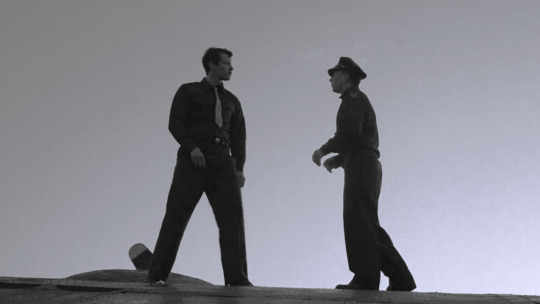
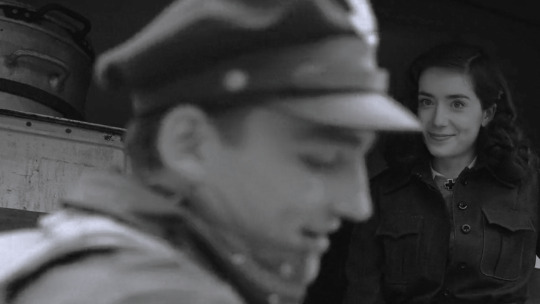


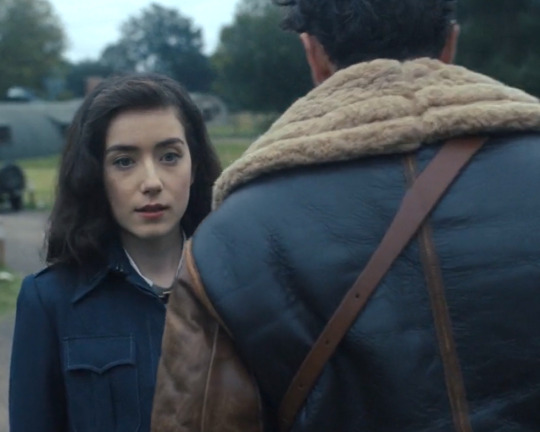
stop-motion poetry
Fandom: Masters of the Air
Rating: T
Word Count: 1295
Summary:
the irony of loneliness / is we all feel it / at the same time - Rupi Kaur
(Italicized passages are also Rupi Kaur poems.)
i tried to find it
but there was no answer
at the end of the last conversation
Everywhere was empty, like a museum. Crosby’s skittish fingers kept tracing around inside his pocket, and he finally realized what he was absent-mindedly feeling for: the snow globe.
In his other pocket, he had the intercepted letter. He was treating those words as Bubbles’ last to him, though… would Bubbles have shown him the letter? Maybe, if Crosby had asked. Maybe, because Bubbles might feel he was coming between Crosby and Jean if he didn’t. He could be funny like that. Whenever Jean came up, Bubbles made Crosby feel like Wendy regarded by the Lost Boys—an adult among children.
Wouldn’t you like to know, Bubbles had shot back when Crosby’d repeated the name of the plane. Suddenly, Crosby was the clueless one, Bubbles with the inside baseball on the mystery of women, high on the promise of She’s Gonna. Now, Crosby wasn’t so sure Bubbles was correct; why should he have liked to know? He had no inclination to know what Bubbles knew. What the sky looked like when all the planes in it were falling. Whether you felt an explosion that happened so close, so fast. How long it took to die from a thing like that. Nope, Crosby wasn’t interested.
He preferred to remember Bubbles the way he remembered the snow globe: a little something to carry with him everywhere he went. When the world slanted, something to be plucked from the tilt and, once held, leveled.
—
i hardened under the last loss. it took something
human out of me. i used to be so deeply emotional i’d
crumble on demand. but now the water has made its
exit. of course i care about the ones around me. i’m just
struggling to show it. a wall is getting in the way. i used
to dream of being so strong nothing could shake me.
now. i am. so strong. that nothing shakes me.
and all i dream is to soften.
She recalled that he’d had too much to carry, heavy kit bag slung over his shoulder, but when he’d taken the provisions she’d passed him, he’d managed not to crush the donut against the mug of coffee he’d held in the same hand. Herbert had been gentle, that was what Helen recalled. Forward, yes. Obvious, yes—but gentle.
Some of them hadn’t taken the donut, but just about all of them took the coffee, unless they were very young and shied from the bitterness. There had been others before Herbert. Men who’d crossed a room to talk to her, men who’d announced their name and stuck out their hand. Helen had felt their palms on the small of her back when they’d danced. She’d seen their faces up-close, with the bravado gone, had understood herself an as object of lust or a tap on their watch, reminding them time might be running out. Sometimes, she’d only danced with them through words. Sometimes they hadn’t come back from the mission, and she’d wished she’d been kinder.
It was good though, that she and Herbert hadn’t kissed on the mouth. It meant she couldn’t miss that feeling. Missing the smile he’d given her the morning they flew out was plenty hard. Missing the scent of the oil he’d used in his hair, the rosy smudge of lipstick she’d left on his jaw during their dance.
Ever since Major Rosenthal had told her, since he’d said Lieutenant Nash had gone down, Helen’s chest had been a crater she covered over with smiles like old boards, stiff and creaking, threatening to cave in. She felt guilt, because Herbert had called her “Helen of Troy.” She hadn’t sent them, but she was too smart and too good at punishing herself not to figure that she had, in a way, launched those ships of the air. She represented the innocent, to them. Sisters and sweethearts. To fight for her or something like her, they would all go, go by the hundreds. One less, now.
At the next dance, Helen decided, marooned on the grass by Rosenthal, she would shake her head and stay at the table.
—
yesterday
when i woke up
the sun fell to the ground and rolled away
flowers beheaded themselves
all that’s left alive here is me
and i barely feel like living
Dawn came. Bucky wasn’t convinced the sun came with it. Through the windscreen and the cigarette smoke trapped in the cockpit, the sky changed colour, definitely paler than night as it arrived before his itchy eyes, but if there was light, he didn’t register it. Like a telephone call in another room, it wasn’t for him.
He wanted to drink himself into the plane. Become so liquid that the seat absorbed him, that a thin trickle of whatever was left of him dribbled into the fuel tank. Then he could be burnt up. Sic transit Major Egan: He was an unpredictable drunk, and a more successful flirt than he’d deserved to be. He’d had a best friend, once. That man—that better man—was gone and nobody was lookin’ for him. Bucky was looking pretty damn hard in the bottom of this flask, but so far, no luck.
The horizon turned blue, which was bullshit. Blue was for eyes. Bucky laughed harshly at nature’s mistake.
“Hey, Curt,” he called over his shoulder, loose grin sliding all over his mouth. “Curt!”
But that had been a different today-is-tomorrow. Bucky blinked more tears back into his eyes, like he’d been doing all night. His smile withered. Too much water. Not enough light.
—
in order to fall asleep
i have to imagine your body
crooked behind mine
spoon ladled into spoon
till i can hear your breath
i have to recite your name
till you answer and
we have a conversation
only then
can my mind
drift off to sleep
It was usually that Curt’s body did what his mind would’ve urged him not to if it’d been paying attention. As the plane swept towards the ground and his body, shoved back against the pilot’s seat, couldn’t slow the descent, his mind took the controls and slowed time. He began to be able to separate the breaths in his rapid panting. He could think of stuff that wasn’t this, climb into the top turret of his own brain. He could see that it was a stupid fuckin’ idea to try to land a Fort with a belly full of bombs while his hands distantly and futilely kept trying to pull up and slow the glide. His body knew how it ended: in an orange ball, fire round as a cloud. His mind reached out and tugged up another reality like a blanket.
A blue hour, walking the wing, the air damp and cool, but it didn’t matter because he was warm from drinking, but not so much drinking that he couldn’t strike a taunting Bucky hard and sharp with a clean, swift hook, but not so hard and sharp that Bucky didn’t still smile after it connected, but not such a big smile that Curt was in danger of thinking it was real. The smile. The memory.
The plane battered through the trees.
“Oh god.”
He tugged up another place, another time. Dickie with a whole, smooth face. Buck’s voice coming down the line, callin’ Curt Bucky’s little spoon. Smilin’. Sleeping in a Scottish bed that smelled like wool and the fire that’d burnt down in the hearth. He’d been wound up so tight after the crash-landing, scoring those rows of cabbages from the earth. He hadn’t thought he’d be able to surrender to anyone, ever, including sleep, but sleep had come eventually.
“DICKIE—”
Yes, sleep had come.
#my writing#Masters of the Air#MotA#MotA fic#Harry Crosby#Joseph 'Bubbles' Payne#Helen (Masters of the Air)#Herbert Nash#John 'Bucky' Egan#Gale 'Buck' Cleven#Curtis Biddick
33 notes
·
View notes
Photo

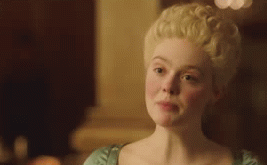

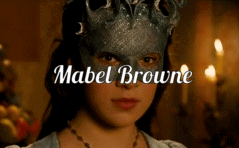


“These now serve one noble Queen,
But if power were in me,
For beauty, praise and virtues sake,
Each one a Queen should be.”
- The Praise of Eight Ladies of Queen Mary’s* court, by Richard Edwards
YOUNG LADIES OF MARY I’S COURT
JANE DORMER - Born in 1537, Jane Dormer was childhood playmates with King Edward VI. Jane joined Mary’s service prior to her accession, and upon becoming queen in 1553 became her closest maid, sleeping in her bedchamber with her, carving the queen’s meat and looking after the crown jewels. Mary was reluctant to let her marry, claiming there was no one worthy enough for her.
Jane was described in a poem by courtier playwright Richard Edwards as “a darling, and of such lively hue, that who so feeds his eyes on her, may soon her beauty rue.”
She eventually married Gomez Suarez, Duke of Feria, a close friend of Philip II of Spain in 1559, and moved to Spain later that year while pregnant with their first child. In Spain, Jane would maintain contact with Roman Catholics in England, and was seen as a champion of exiled English in Elizabeth’s reign; she also corresponded with four different Popes. After her husband’s death she took control of his estates, and was a candidate to take up the governorship of Flanders in the 1590′s.
MABEL BROWNE - Born in 1538, Mabel joined Mary’s household sometime prior to 1552. Due to her long standing service, Queen Mary attended Mabel’s wedding hosted in the Chapel Royal on 28th May 1554; according to historian Mary Everett Green, Mabel first met her husband Gerald Fitzgerald, 11th Earl of Kildare, at a masked ball. Shortly after the pair left for Ireland, where Mabel kept several priests in her household including a private chaplain named Nicholas Eustace. Nicholas was a relation of the Elizabethan rebel James Eustace, who mustered an Irish army with the help of Spanish troops to depose Queen Elizabeth; when this failed he fled to Spain. Mabel’s husband would be arrested in the Tower of London for years under suspicion of treason, which Mabel avoided despite keeping in touch with Jane Dormer.
MAGDALEN DACRE - Born in 1538, Magdalen Dacre was described by historian Sharon Turner as having been blonde, pretty and very tall; she allegedly stood a head above the other maids at court. According to contemporary biographer Richard Smith, one day Magdalen was washing her face when Queen Mary’s husband Philip II of Spain “playfully reached in”. She then picked up a staff and “strongly stroke the King on the arm”.
Like Jane Dormer, she was one of the maids mentioned in Richard Edward’s poem, where she was described as “not dangerous, her talk is nothing coy, her noble stature may compare to Helen of Troy.”
On 15th July 1558, Magdalen married Anthony Browne, close friend of Queen Mary and former Master of the Horse to Philip. The ceremony took place at Saint James’s Palace and the queen was in attendance. During Elizabeth’s reign Magdalen kept an illegal chapel for 120 worshippers, and her home became locally known as “Little Rome”. She supposedly wore a coarse linen smock beneath her court dresses, and was once accused of recusancy. Despite this, Queen Elizabeth visited her and her husband at Cowdray Castle in 1591, where the priests were kept well hidden.
*the poem is titled Queen Elizabeth’s ladies, but all the women mentioned served Mary and not her sister
#i've had this in my drafts for years lol#anyway if no one's making content i'll make it myself!#mary tudor#mary i#tudor#history
48 notes
·
View notes
Text
What frustrates me a lot is that it certainly feels like basically any other character (and their relationships) attached to the Trojan war cycle can be interpreted positively. Can be woobified or excused, have their questionable to awful actions explained away, softened, or downright ignored.
Except for Paris.
When it comes to Paris it's like the only thing acceptable [here on Tumblr] is the most ungenerous, flat and negative of interpretations of his character, of his actions, of his relationships.
But whatever, I guess. Forget Paris for a moment; let's talk about Helen.
Because like---
Obviously, it's a valid angle to go with "she was kidnapped". It's certainly a specter present in some texts, and in later versions the absolute route taken, even when Helen also is attracted to Paris. But it's certainly not the absolute only possible and somehow the most reasonable and correct interpretation.
Not when a large chunk of the oldest sources is clearly leaning into "Helen did something blameworthy", and it's blameworthy because she had the agency to do something that would be considered blameworthy.
And again, obviously, in a lot of these sources "Helen did/was able to do something blameworthy" (and thus equally able to refrain, which is why it's blameworthy), is used for misogynistic and sexist views.
But not always, and not in all of them. There's a whole world of difference between the inferred character and actions of Helen in, say, Alcaeus' Thetis poem, and Sappho 16. Both, however, lean into "Helen acted".
And the Iliad itself has Helen blame herself.
There's really only two possibilities to get out of the Iliad's situation. Either she did do something/had the agency to do something that she now regrets, and thus has cause to blame herself, or she did not do anything/didn't have the agency to do anything and had it done to her instead, and is blaming herself for literally no reason.
(She blames herself even to those who do not care, and to whom it gives her no social advantage to put herself down in front of, like Aphrodite.)
I'm just not ever going to prefer a version where Helen's potential or actual agency is taken away, especially when that isn't actually the only version that exists. Particularly not when 'she was kidnapped' usually means she's turned into an acted-upon victim who is passively suffering for twenty years.
Is it truly such an unconscionable crime to being attracted to someone else than her spouse? Sleeping with said someone else, willingly?
Something which basically any male character in Greek myth either has done or will certainly not catch social opprobrium for doing if he decided to do so, because they are a man.
Of course, Helen doesn't just potentially sleep with Paris - leaving Sparta is a lot more than that. But there's a world of possibilities in how you have Helen leave, if she's indeed attracted to Paris. A flighty ~lol I don't care about the consequences~ is one of the most simple and boring ones, for example.
(But again, the language used in, say, Proclus' summary of the Kypria or the Bibliotheke, to take two works at opposite end of the spectrum, is not really "forceful abduction".)
Further, "Aphrodite LITERALLY tricked her/sex-brainwashed her and she stopped being attracted to Paris basically upon arrival in Troy" and similar sentiments isn't really what is meant when "trickery" is mentioned in the text. It's all about how seduction and sex in itself is at some level viewed as "trickery".
It's just deeply fucking frustrating that it's apparently preferable to stick Helen in literal captivity for ten-twenty years and be sexually assaulted for that length of time than applying some nuance and complexity to the situation. Even if - maybe especially if - at the end of the war, while Helen is still attracted to Paris (because she is), she doesn't like him very much - those are different things, after all.
11 notes
·
View notes
Text
Deep dives into folklore: Greek mythology
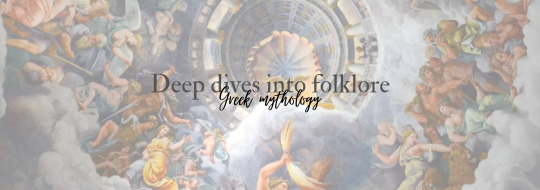
Greek mythology is a rich and intricate tapestry of gods, goddesses, heroes, and mythical creatures that has captivated the imagination of people for centuries. Rooted in ancient Greece, this body of myths has had a profound influence on Western literature, art, philosophy, and culture. Let's take a deep dive into the fascinating world of Greek mythology.
Creation Myth: Chaos and the Titans
The Greek cosmos begins with Chaos, a formless, primordial void. From Chaos emerges Gaia (Earth), Tartarus (the underworld), and Eros (Love). Gaia gives birth to Uranus (Sky), and together they create the Titans, the powerful and primeval beings who ruled the cosmos before the Olympian gods.
Uranus, fearing the power of his children, imprisoned the Cyclopes and the Hecatoncheires (hundred-handed ones) in Tartarus. This angered Gaia, who conspired with her son Cronus to overthrow Uranus. Cronus castrated his father, and from the blood that fell to Earth, the Furies, Giants, and nymphs were born.
The Reign of the Titans
Cronus became the ruler of the cosmos, but he feared a prophecy that foretold his downfall at the hands of one of his children. To prevent this, he swallowed each of his children as they were born. However, his wife Rhea managed to save Zeus by giving Cronus a stone wrapped in swaddling clothes instead. Zeus was raised in secret on the island of Crete.
Upon reaching maturity, Zeus challenged Cronus and the Titans in a great war known as the Titanomachy. With the help of his siblings, the Cyclopes, and the Hecatoncheires, Zeus emerged victorious. The defeated Titans were imprisoned in Tartarus, and Zeus became the king of the gods.
The Olympian Gods
The Olympian gods, led by Zeus, ruled from Mount Olympus and governed various aspects of the mortal and immortal worlds. Each god and goddess had their own domain and specific attributes:
Zeus: King of the gods, god of the sky, lightning, and thunder.
Hera: Queen of the gods, goddess of marriage and childbirth.
Poseidon: God of the sea, earthquakes, and horses.
Demeter: Goddess of the harvest and fertility.
Athena: Goddess of wisdom, warfare, and crafts.
Apollo: God of the sun, music, poetry, and prophecy.
Artemis: Goddess of the hunt, wilderness, and wild animals.
Ares: God of war and bloodshed.
Aphrodite: Goddess of love and beauty.
Hephaestus: God of fire, metalworking, and craftsmanship.
Hermes: Messenger of the gods, god of commerce and travelers.
Dionysus: God of wine, pleasure, and festivity.
Heroes and Their Labors
Greek mythology is replete with heroic figures who undertake extraordinary quests and face daunting challenges. One of the most famous heroes is Heracles (Hercules), known for his twelve labors imposed as punishment for killing his wife and children in a fit of madness induced by Hera. These labors include slaying the Nemean Lion, capturing the Golden Hind, and cleaning the Augean stables.
Other notable heroes include Perseus, who slayed the Gorgon Medusa; Theseus, who defeated the Minotaur in the labyrinth; and Achilles, the hero of the Trojan War, whose only vulnerable spot was his heel.
The Trojan War
The Trojan War, a central event in Greek mythology, was fought between the Greeks and the Trojans. It was sparked by the abduction of Helen, the wife of Menelaus, by Paris, a prince of Troy. The war lasted ten years and involved famous heroes like Achilles, Hector, and Odysseus. The war is chronicled in Homer's epic poems, the "Iliad" and the "Odyssey."
The Underworld and Afterlife
Hades, the brother of Zeus and Poseidon, ruled the underworld, a realm where the souls of the deceased went after death. The ferryman Charon transported souls across the river Styx to the realm of the dead. The most famous section of the underworld is Tartarus, a place of torment for the wicked.
Mythical Creatures and Beings
Greek mythology is populated with a diverse array of mythical creatures, such as the fearsome Chimera, the multi-headed Hydra, the Sphinx, the Griffin, and the Pegasus. These creatures often played roles in the heroic quests of demigods and mortals.
Legacy and Influence
Greek mythology has left an indelible mark on Western civilization. Its themes of heroism, tragedy, and divine intervention have inspired countless works of literature, art, and philosophy. The plays of ancient Greek playwrights like Aeschylus, Sophocles, and Euripides drew heavily from these myths. Additionally, the Renaissance saw a revival of interest in classical mythology, with artists and scholars exploring its themes in their works.
In conclusion, Greek mythology is a vast and intricate tapestry that weaves together the stories of gods, goddesses, heroes, and mythical creatures. Its enduring legacy is evident in the continued fascination with these tales and their impact on art, literature, and culture throughout the ages. The myths serve not only as captivating stories but also as windows into the ancient Greek worldview, exploring the complexities of the human experience and the relationship between mortals and the divine.
Taglist (reblog/reply to be added):
@axl-ul @crow-flower @thoughts-fromthevoid @alderwoodbooks @harleyacoincidence @tuberosumtater @sonic-spade @theonlygardenia @holymzogynybatman @nulliel-tres
#writeblr#writers of tumblr#writing#bookish#booklr#fantasy books#creative writing#book blog#ya fantasy books#ya books#deep dives into folklore#deep dives#greek mythology#greek myth retellings#greek myth art#greek myth memes#percy jackson#percy jackon and the olympians
10 notes
·
View notes
Text
Herodotus and Sappho
"An additional possibility to consider in assessing the intent or effect of Herodotus’ introductory priamel involves intertextuality of a different sort. Could Herodotus’ prose version also respond, consciously or otherwise, to a specific poetic example of the structure, or more broadly to the use of the priamel in a specific genre or genres of poetry? Race has pointed out fundamental similarities between Histories 1.1-5 and Sappho fr. 16, which he considers ‘[u]ndoubtedly the most famous priamel in Greek literature’.74 There is in fact internal evidence for Herodotus’ familiarity with Sapphic poetry: in Book 2 Herodotus mentions that ‘in a lyric poem’ (ἐν µέλει, 2.135.6) Sappho heaped abuse upon her brother Charaxes for buying the freedom of the Egyptian courtesan Rhodopis. Both Sappho 16 and the Herodotean preface embody a particular type of priamel, attested earlier still in the first Homeric Hymn to Dionysus (lines 1-6), in which the views of others are described but then superceded by the author’s own opinion.75 Sappho’s poem presents various perspectives on what is most beautiful (κάλλιστον), which some (οἰ µέν) consider to be cavalry, others (οἰ δέ) infantry, and others still (οἰ δέ) ships; for her part, by pointed contrast, Sappho considers most beautiful ‘whatever one loves’, ἔγω δὲ κῆν’ ὄτ- / τω τις ἔραται (3-4). In addition to the first-person pronominal cap and the capping particle δέ paralleled in Herodotus, note too the generic, anonymous identification of Sappho’s ultimate object of interest/desire as ‘whatever one loves’,
before the name of Anactoria is finally revealed in line 15 (cf. the deferred identification of Croesus in the Histories). In the meantime, Sappho has supported her case for the power of love with a mythical exemplum that also finds a place in Herodotus’ prologue, Helen’s fateful departure for Troy. Finally, Pelliccia notes as well the ‘pleasing coincidence’76 in Sappho’s statement of preference for Anactoria over chariots specifically identified as Lydian (19). As noted above, when Herodotus first and at last introduces Croesus by name, he identifies him by nationality as well (.): Κροῖσος ἦν Λυδὸς µὲν γένος … (Croesus was Lydian by birth …).
Pelliccia adduces the detail of Sappho’s spurned Lydian chariots as part of his broader argument that Herodotus consciously evokes this poem in his prologue for the sake of disagreeing with it—for the sake of reversing Sappho’s ‘rejection of martial themes in favor of the personal and erotic’.77 Herodotus thus demonstrates his originality by ‘locating political causality in the axes of power rather than in the whims of lust’,78 exemplified by both Sappho’s predilection and the mythical abductions rehearsed in 1.1-5. Herodotus’ opening story of dynastic change brought about by Candaules’ disastrous ἔρως for his own wife (1.8-12) may seem to pose an immediate obstacle to this reading. However, as Pelliccia points out, Herodotus follows a
procedure typical of priamels in merely ‘demoting’ the foil rather than banishing it outright—a tendency also reflected in Race’s characterisation of the relationship between foil and climax as one of contrast and analogy.79 At the very least, Herodotus seems to suggest that in the realm of historical causality the distinction between war and love, between public and private spheres, cannot be drawn so stringently as Sappho has done. This exemplifies a well-known feature of Herodotus’ treatment of causation, whereby important historical events are represented as originating in the personal motives of his characters80—e.g., Darius’ interest in subjugating Greece, a target suggested by queen Atossa in the confines of the royal boudoir as a source of superior serving girls (and as a favour to the Greek physician Democedes, who is eager to leave the king’s court and return to his native Croton (3.133-6)).
Thus the numerous points of contact between Sappho 16 and the prologue of the Histories suggest that, in addition to underscoring points of significant contrast with Homeric epic, Herodotus’ rhetorical strategy may also have evoked an especially well known poetic priamel, imitating its form while contesting its argument..."
From the article of Charles C. Chiasson "Herodotus' Prologue and the Greek Poetic Tradition", Histos 6 (2012), 114-143
7 notes
·
View notes
Text






Since it's pride month again I wanted to share here the sapphic shoes I hand-painted last year, they're based on Sappho's poetry and have quite a hefty amount of reference so if you're interested I'll leave my statement on them below!
Voicing our Pride: A visual representation of Sapphic poetry
Surely once you too were a delicate child:
come now, sing this, all of you, add your voices
to our celebration and grace us with your
company [
– Sappho
Pride is more than just a celebration of queer identities; it is a celebration of both the struggles and successes in queer history. In order to represent this, I turned to one of the earliest queer poets: Sappho, an Archaic Greek poetess known for writing on themes of wlw (women-loving-women) love.
The overarching motif of the shoe are rainbow auroras that move across the shoes without regard for the physical panel design. The rainbow represents the original pride flag, while the free-flowing movement across panels represents how queer people are often seen as breaking gender and sexuality boundaries put in place by society. Also depicted across the shoes are birds representing freedom as they take to the sky, as in the lines:
Then beautiful swift sparrows led you over the black earth
from the sky through the middle air,
whirling their wings into a blur.
The right shoe features two women holding each other and smiling intimately, while the left shoe depicts a close-up of clasped hands; both of these are inspired by vintage black and white photos. Again, this ties into one of the main themes of Pride: celebrating the relationships of LGBT people of the past who may not have had the same freedoms, acceptance, and opportunities as queer people have now. I chose to again tie this imagery to Sappho’s poetry adding violets, as well as giving one of the women violet hair, as these flowers are a representation of sapphic love:
maidens [
all night keeping vigil [
make a song someday of your love and of your
violet-lapped bride.
On the inside heels of each shoe are two more images related to Sappho’s poetry. The boat is a reference to the line that even ships are not as beautiful as what one loves:
Some say an army of horsemen,
some of footsoldiers, some of ships,
is the fairest thing on the black earth,
but I say it is what one loves.
This could also depict the story referenced later in the same poem of Helen leaving the city of Troy, sailing away to follow after the goddess with whom she has fallen in love. In a broader sense, the ship can also symbolize journeys and exploration, which are themes young queer people often find to be resonant as they explore their own self-identities. Contrasting the ship, the cottage overgrown with vines on the other shoe’s inner heel represents the safety of home. Many young queer people dream of finding a safe place to call home where they can be accepted and loved, where they can take root in order to grow into their best selves. Together, the ship and cottage combine to represent the possibilities of the future.
The imagery all around the shoes are tied together by gold detailing portraying stars, rays of light, and phases of the moon. Sappho speaks of the splendor of the stars in one of her fragmented poems, personifying the moon as a beautiful woman to whom Sappho speaks lovingly:
As the stars surrounding the lovely moon will
hide away the splendor of their appearance
when in all her fullness she shines the brightest
Gold lines and stars also spill out from the illustration of a face on the left shoe, representing the voice of Sappho’s subject, likely the woman she loved:
listening from closeby to the sweetness of your
voice as you talk, the
sweetness of your laughter: yes, that—I swear it—
sets the heart to shaking inside my breast, since
once I look at you for a moment, I can’t
speak any longer
Alternatively, these gold lines could represent the voice of the Poetess herself, or even the collective voice of all queer people throughout history. In today’s world, Pride allows us to amplify our voices and celebrate our stories and emotions just as Sappho did in her time.
#my art#pride art#pride month#sappho#shoe art#lesbian#sapphic#sapphic art#sapphic love#happy pride 🌈
14 notes
·
View notes
Photo



“Close, close, against my heart I hold my world.”
— Sara Teasdale, from Helen of Troy & Other Poems
#the last kingdom#thelastkingdomedit#tlkedit#tvedit#perioddramaedit#aethelflaed#aldhelm#aldflaed#aethelflaed x aldhelm#periodedit#perioddramasource#*my stuff
130 notes
·
View notes
Text
odysseus, king of ithaca (asteroids odysseus (1143) & ulysses (5254))
yes this is another one of those heroes with two asteroids! odysseus was his greek name but ulysses was his roman! you choose whichever one you want :) or use both lol.
“when talking about such a popular god/goddess/hero i am going to for warn paraphrasing - of course all these stories have more details and all these popular gods/heros have stories within stories. i would love to share them all/in detail but i would need a book and a lot more time to write it. my attempt in writing these posts are to inform you on the high level story of the god’s/goddess’s/hero’s life. that being said if any one of the events regaled in the post pique you interest - please let me know i don’t mind giving a more in-depth tale of any of the events mentioned.”
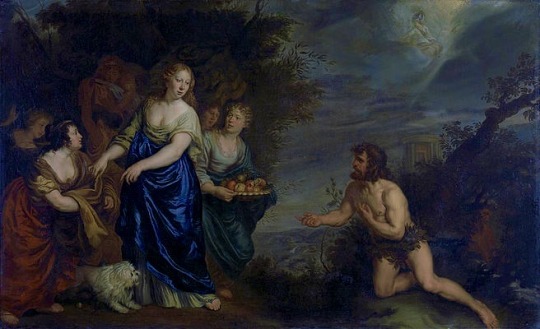
Odysseus was the son of Laertes and Anticlea. He is known as a great many things: motivational, trickster, suitor of Helen, warrior of the Trojan War, etc. The Odyssey is considered one of the greatest epic poems to have existed in the western world - but before I get into the summary of that (the bulk picks up after the Trojan War - RIP Achilles), let's highlight some of his early life. On a hunting trip with his uncles in his youth, he receives a deep leg wound from a boar he then kills on said hunt. Later he becomes one of the suitors of Helen, though he is the least enthusiastic of her suitors due to his interest in her cousin, Penelope, whom he marries. Odysseus and Penelope had just had their son, Telemachus, when his oath as Helen's suitor was called upon after her abduction by Paris. But he didn't want to go to war so he feigned madness by sowing a field with salt (it takes a long time to cure salted land before anything grows there again). The recruiter tested his sanity by placing Odysseus's young son in front of the plow’s path - Odysseus never forgave the recruiter, Palamedes. Odysseus is the one who lured Achilles out of hiding. Odysseus saw a prophet who said that the Greeks would only win if Achilles was on their side. So he learned of Achilles hiding amongst women and devised the plan to out him with a spear and a fake attack. In the Trojan War, Odysseus was a key strategist - he was the one who suggested the Trojan horse. Post-war is when things get a bit chaotic, it takes him and his men ten years to get home. In these ten years, they face all sorts of monsters. Troy was in shambles which caused their first detour to Ismara to gather supplies - the tribe was on the side of the Trojans though so they were attacked upon arrival. As they pushed onward to Ithaca, a storm occurred which took them to the island of the lotus eaters. The lotus flower nearly took out his whole crew before Odysseus realized that the plant was making everyone fall asleep - so they quickly left. The most well-known incident occurred next, Polyphemus, the cyclops, and his cave. The crew arrived, overjoyed to find a cave filled with food when they are then trapped in the cave by a boulder. Odysseus would go on to get the cyclops drunk and tell him that his name was "nobody." Later when the cyclops passed out drunk, Odysseus would blind the cyclops and this would attract other cyclops with his screams in pain. Polyphemus would scream that “nobody, was killing him” and the other cyclops would leave in confusion. They would eventually escape tied under Polyphemus’s sheeps's bellies - this outraged Polyphemus causing him to chuck boulders in the direction of the ship. Empowered, Odysseus would then tell the cyclops as they sailed away who he actually was - hubris the fatal flaw of most heroes. This was what caused Polyphemus to tell his father, Poseidon, who blinded him. In response, Poseidon ruined Odysseus's ship - losing his entire crew, Odysseus was then alone for the time being. All these struggles would continue through Aeolus, the encounter with the Laestrygonians, the visit with Circe, the trek to the Underworld, sailing past the sirens, etc. After the years passed, he came home to suitors having invaded his palace in attempts to gain Penelope's favor. Odysseus met with his friend to gain his support, when his son, recently back from his search for his father, walked in. The friend gave the two space - Odysseus exposed his true identity and they embraced. Together they went to the suitors' completion day, where Odysseus disguised as a beggar wiped the floor with everyone (literally he ends up killing them all lol) and finally shows his wife who he truly was. She joyfully welcomed him home. And the two live happily ever after - theee enddd. IN MY OPINION Odysseus shows a) where you can expect adventure, b) where you experience delays, c) where you think outside the box, d) how you tend to outsmart someone (better used in a synastry chart), e) where you may be a little unlucky, and/or f) where you are seen as legendary.

i encourage you to look into the aspects of odysseus along with the sign, degree, and house placement. for the more advanced astrologers, take a look at the persona chart of odysseus AND/OR add the other characters involved to see how they support or impede odysseus!
OTHER RELATED ASTEROIDS: circe (34), achilles (588), paris (3317), poseidon (4341 / h47), penelope (201), helena (101), laertes (11252), telemachus (15913), palamedes (2456), and sirene (1009)!
like what you read? leave a tip and state what post it is for! please use my “suggest a post topic” button if you want to see a specific post or mythical asteroid next!
click here for the masterlist
click here for more greek myths & legends
want a personal reading? click here to check out my reading options and prices!
#astrology#asteroid#asteroid astrology#astro chart#astro community#persona chart#natal chart#astro placements#greek mythology#asteroid1143#asteroid5254#the odyssey#odysseus#asteroid34#circe#asteroid588#achilles
51 notes
·
View notes
Text
FICTIONAL CHARACTER ASK: THE PRINCESS (FROM THE TALE OF THE DEAD PRINCESS AND THE SEVEN KNIGHTS)
@princesssarisa @faintingheroine @angelixgutz @softlytowardthesun @the-blue-fairie @themousefromfantasyland @grimoireoffolkloreandfairytales
Tagged by no one. I Just wanted the chance to talk about her character
Favorite Thing About Them: She is an organized person who knows how to trade services in exchange for shelter and protection, plus how to gain other people's thrust and make them her friends, and is polite but firm when presenting an argument to refuse something.
Least Favorite Thing About Them: Just the fact that her love interest (Prince Yelisei) has a name while she doesn't.
Three Things I Have In Common With Them:
I like apples
There are lots of times where i feel vulnerable and have to ask for protection
I have an idealist romantic side to my personality
Three Things I Don't Have In Common With Them:
I am not russian
I am not royalty
I have a good relationship with my stepmother
Favorite Line:
O my brave and bonny brothers,
Virtuous beyond all others!
God in heaven strike me dead
If my answer be not honest:
I've no choice? my hand is promised!
You're all equal in my eyes,
All so valiant and wise,
And I love you all, dear brothers!
But my heart is to another
Pledged for evermore. One day
I shall wed Prince Yelisei!
brOTP: Her maid Smudge and the Knights.
OTP: Prince Yelisei.
nOTP: The Tsarisa
Random Headcanon: Her name is Yelena, the russian version of Helen, because her beauty is comparable to Helen of Troy, the most beautiful woman in the world.
Unpopular Opinion: As far as Fairest of them All type of stories go, I feel the writing of this narrative poem by Alexander Pushkin has a better pacing, focus on the main heroine's point of view and feelings and building of romance compared to the more well known german tale of Snow White and The Seven Dwarfs written by the Brothers Grimm, wich makes it a more enjoyable reading of a work of literature that feels more complete.
Song I Associate With Them:
Fly Away on the Wings of Wind (Uletay na Krilyah Vetra)
youtube
Russian Land
youtube
Favorite Picture of Them:
This illustration by Mikhail Nesterov

These illustrations by Boris Zvorykin

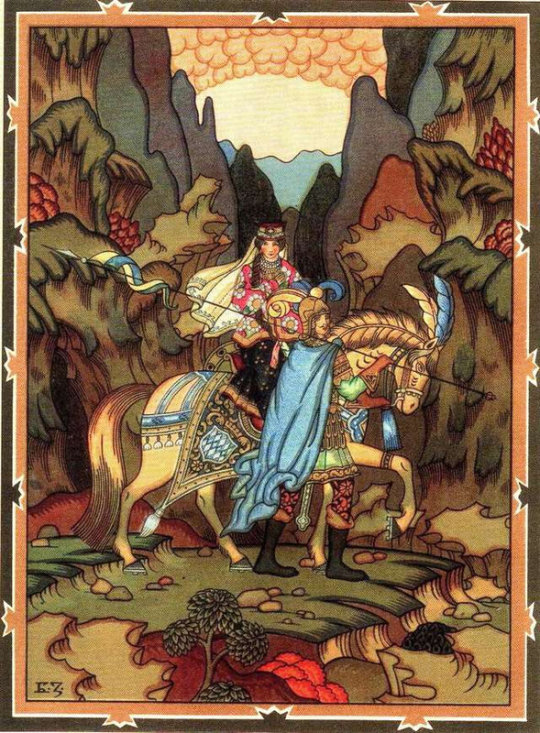
These illustrations by Vyacheslav Nazaruk



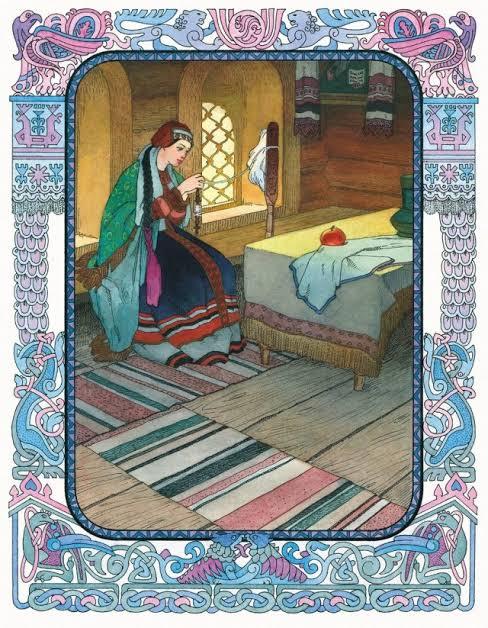


The portrayal alongside Prince Yelisei by the Soyuzmultfilm animated movie

#the tale of the dead princess and the seven knights#snow white#alexander pushkin#fairy tales#fantasy#literature#russian folklore#Youtube
27 notes
·
View notes
Text
I'm not sure why, but this Sappho's poem (16th fragment) reminds of the portrait of “Léonide” by Henri Lehmann:
Some say a host of cavalry, others of infantry,
and others of ships, is the most beautiful
thing on the dark earth, but I say it is
whatever a person loves.
It is perfectly easy to make this
understood by everyone: for she who far
surpassed mankind in beauty,
Helen, left her most noble husband
and went sailing off to Troy with no thought at all
for her child or dear parents,
but [love?] led her astray …
lightly …
[and she]
has reminded me
now of Anactoria
who is not here;
I would rather see her
lovely walk and the bright sparkle of her
face than the Lydians’ chariots and armed
infantry …

Is this because, to me, the portrait just seems as beautiful as the poem is?
Or, perhaps, it is a mere glimpse of the past; a reminiscence of a person that I loved?
53 notes
·
View notes
Text
one thing I'm NOT gonna do today is get in a Twitter argument over whether Homer "should" have condemned the Greeks for their actions in the Trojan War
-whoever wrote or compiled the Iliad was Greek, writing in an age when totally destroying an enemy city was accepted, even glorified, in warfare
-this author gives far more sympathy, complexity, and emotional weight to the Trojans, portraying the Greeks as vain, squabbling aggressors. When Hecuba tears her hair and veil upon seeing her son's body dragged in the dust, is that not condemnation enough? Do you need the author to say "by the way: the Greeks are fucking this up"? He's too subtle and multifaceted for that
-at worst, there's a war-is-hell both-sidesism, as both the Trojans and the Greeks break promises and commit terrible violence. But the best of the Trojans, Hector, longs for peace and considers just giving Helen up to the Greeks; the best of the Greeks, Achilles, just wants to fuck shit up for his own glory. He is a hero, and he is treated as a hero, because this is a society and an author with a different moral code than ours, but he crosses a line when he desecrates Hector's body, and even the poem is so horrified by his actions that it turns its face away
-it is Troy's fate to be destroyed, but the gods themselves are divided over whether this should even happen, and Zeus is determined that the Trojans should make a good showing before their inevitable downfall. Compare that to other war-related texts from the era and it's pretty obvious that this is about as generous towards the enemy as one could expect. Not that everyone at the time was like genocide woooooooo love it, but the attitudes toward death and destruction were incredibly different. The author we call Homer treats those things as unavoidable, but that's not the same as treating them as good. To paraphrase Tolkien, if this is to be Troy's end, Homer will have them make such an end as to be worthy of remembrance. If anything, the gods come off the worst here (which bothered Plato, hence his determination that poets would not be allowed in the ideal state), because they keep the war going when the humans are clearly exhausted.
-when Hector leaves the city to fight Achilles, he pauses and thinks that this might all be ended if he goes out weaponless to plea for peace, to surrender Helen and everything else that was stolen. But he realizes the Greeks won't rest until Troy is a smoking ruin, and his heroism will ultimately be pointless. And he goes out to fight Achilles anyway. That's a brief but very important moment in the story, and if it doesn't condemn the Greeks, I don't know what does.
-do you need Homer to hold your hand and tell you the Greeks are doing a bad thing when they mutilate Hector's body? when they allow Achilles to sacrifice twelve boys on Patroclus's pyre? when they are so brutal that the river Scamander itself rises to flood the battlefield? do you need the poem to stop dead so that the author can say Don't Do A Genocide, Kids? is that gonna make the Iliad better?
Homer feels bad for the Greeks, but he mourns the Trojans. What else do you need?
12 notes
·
View notes
Note
Holly Black aside, who are some of your favorite authors? Favorite books?
hiya nonnie!! love this question, thanks for letting me gush about my favs 🥹🖤 this list is going to be incomplete probably, but here are the series/books that legit live in my head rent free:
YA AUTHORS/SERIES
Leigh Bardugo- Six of Crows
Sarah J Maas- A Court of Thorns and Roses (thru A Court of Wings and Ruin, everything post-ACOWAR is sort of meh for me)
Roshani Chokshi- The Gilded Wolves
Shelby Mahurin- Serpent & Dove
ADULT AUTHORS/BOOKS
V.E. Schwab- The Invisible Life of Addie Larue
Casey McQuinston- Red White & Royal Blue
Helen Oyeyemi- White is for Witching, Boy Snow Bird
Angela Carter- The Bloody Chamber
Shirley Jackson- We Have Always Lived In The Castle, The Haunting of Hill House
Bram Stoker- Dracula (cos we're vibing with him recently i see)
Alexander Dumas- The Count of Monte Cristo, The Man in the Iron Mask
Jane Austen- Persuasion, Pride and Prejudice
POETS/POEMS/COLLECTIONS
Charles Baudelaire- Les Fleurs du Mal (The Flowers of Evil)
T.S. Eliot- The Wasteland and Other Poems
Margaret Atwood- Dearly, Morning in the Burned House, Helen of Troy Does Countertop Dancing
Barbara Guest- Parachutes My Love
Ashe Vernon- Boatman
Richard Siken- Crush
EROTICA AUTHORS/SERIES
Anais Nin- Henry & June, The Diary of Anais Nin, Delta Venus
Sierra Simone- The Thornchapel Series
Tiffany Reisz- The Godwicks Series, The Original Sinners Series
#thanks for the ask!! 💜#this list is definitely incomplete lmaooo 🙈#asked and answered#literature#fav books
19 notes
·
View notes